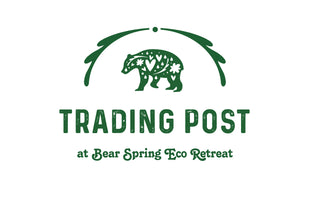Greenwashing

Is green certification really proof of sustainability? We’re not so sure. Here’s why.
Many certifications only address one area of sustainability such as recycling while ignoring the social impacts of low employee wages or the environmental impacts of deforestation. For example, if a restaurant switches from plastic take-out dishes to biodegradable as a social marketing tool but doesn't provide composting, organic waste will still be heading to our landfills. It’s not sustainable. It’s greenwashing.
Green certification is voluntary. There is not any effective national or international legislation regulating such designations and therefore, no way to verify compliance conclusively. Because it’s optional, this dilution can diminish the incentive for businesses to genuinely improve their practices to meet the certification standards, as they may simply see it as a marketing tool rather than a commitment to a broader purpose.
Consumers are becoming increasingly aware of the impacts on the planet from their consumption and are willing to pay more to minimize these impacts. “In 2015, a survey of 30,000 consumers in 60 countries found that 66% of consumers are willing to pay more for products or services from companies committed to positive social and environmental impact (Nielsen, 2015).” That’s 66% that are seeking out green products and looking for green designations, designations that in some cases are not green at all. It can be very misleading.
We recently obtained BC Green Certification. Although we’re proud to have this designation, we didn’t actually need to take any action to qualify. We decided from the beginning to build sustainability practices into our business plan. We’re already doing all the stuff that’s required such as composting, recycling, repurposing, reducing waste going to landfills, reducing operating emissions, switching to energy efficient lighting and appliances, buying local, reducing water use, supporting active and public transit options, volunteering in our community and making charitable donations. If your business is not already incorporating these practices into your daily operations it can be costly to make the switch down the road. It costs even more to get certified. You’ll have to pay for detailed assessments to be conducted. To get B Corp certified, for example, can cost anywhere from $5000 to $40000 depending on the size of your business. So, unless being green is an effective marketing tool for your type of business, there is no financial incentive to go green.
We managed to qualify for BC Green Certification for free this year because the program is new in our area with few members. Free assessments encouraged business owners like us to participate. But, next year, we’ll have to pay. We resent having to pay to prove we’re operating in a sustainable manner while so many others can continue to pollute. We’re committed and the certification fees feel like a penalty. We believe that these fees could be better spent on actionable items in our operations which is what we intend to do next year.
“BC Green Business was launched by the Synergy Foundation in 2013 under the name “Vancouver Island Green Business Collective” to provide Vancouver Island-based businesses with affordable certification and actionable checklists to make their business more sustainable. The program expanded province-wide on its 10 year anniversary in 2023 under the new name BC Green Business.” Unfortunately, the BC Green Business certification program has a very small membership base of about 250 yet the province has more than 500,000 businesses, most small like ours. BC Green members make up only 0.0005 percent. It’s not a very effective tool for incentivising widespread sustainable practices. There are just not enough people that know about the certification or what it means.
We certainly wouldn’t discourage BC Green Business from helping small businesses operate more sustainably but we do question why this program is not simply part of provincial regulations. Many of the action items should be addressed at the time a business is started. For example, provincial businesses development departments should be making sustainable business practices mandatory in all business plans and licensing fees should be priced accordingly. For example, if you don’t have a solid waste management plan incorporated from the beginning of start up, perhaps licensing fees should be higher to compensate for the environmental impact your business will have on society. It can be difficult and costly to make operational changes after the fact. If sustainable action could be incentivised at the beginning, it could make an immediate positive impact. In most cases, taking action to lower your carbon footprint will save you money in the long run. We believe positive actions should be incentivised. It could be more difficult to make sustainability mainstream because business owners have to pay extra to be certified. This is especially true of more popular certifications like B Corp. It would cost a business like ours about $10,000 for the assessment. We believe it would be a more responsible use of $10,000 to spend it on actions that improve the sustainability of our business operations and not on this certification.
It doesn’t really matter what industry your business operates in - food, construction, forestry, tourism, retail - certification has many limitations. For instance, “Organic” is another dubious certification sought after by food producers. The pesticide free label doesn’t mean much if conventional agricultural methods, which damage soils, are still being utilized. On one hand it can be an effective marketing tool demonstrating to your customers that you’re taking steps to be eco-friendly, on the other hand it could be undermining the integrity of sustainable business practices in your industry.
Although green certification has an important role to play by helping communicate to stakeholders, employers and ultimately customers, a positive and responsible image, they often don’t reflect the whole picture. With this in mind, business owners should spend some time deciding which certificates most accurately reflect their business practices. How much does the certification cost? Who is making the assessment? Are you already taking action? If so, it might be more cost effective to simply use the money to take further action and find another way to communicate that to your customers.
Let’s start advocating for legislation that makes green businesses the new standard and make greenwashing a thing of the past.


Leave a comment